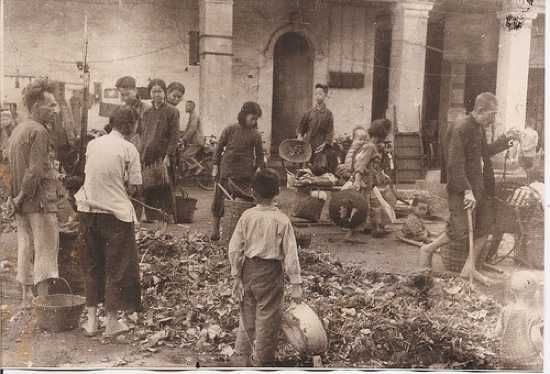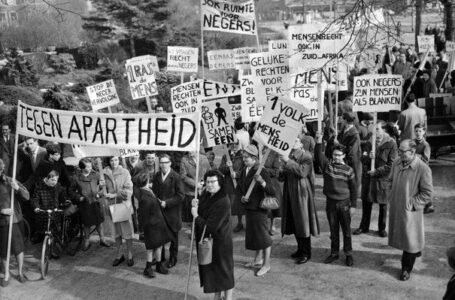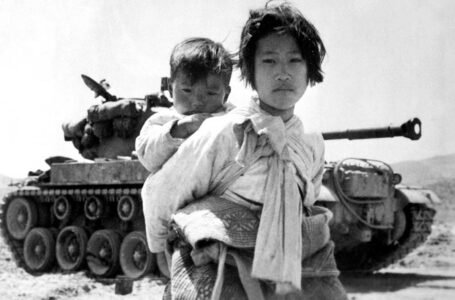The Great Chinese Famine: A Tragedy the World Wasn’t Told About

-Mili Joshi
Between 1959 and 1961, the world was witnessing one of the greatest famines in human history within the Chinese border: tens of millions perished. Yet, for decades, the world hardly knew that such an event had taken place. There were no headlines, no public mourning, and no one to be called to account. It became a tragedy that fell into silence-and not through any natural calamity, but through the exact policies put in place. Now, this is the story of the Great Chinese Famine. It was not simply a food crisis; it was the outcome of a dreadful miscalculation of a political gamble.
Causes of Hunger.
In 1958, Chairman Mao Zedong launched the Great Leap Forward, a radical project meant to overhaul China from a peasant society, an agricultural economy, into an industrial powerhouse. The ambitious goals were to double steel production, collectivize farms, and modernize the economy in just a few years. However, the means were reckless. Peasants were forced into huge collective farms known as “People’s Communes.” There was no private property. Families could not grow food for themselves anymore. All grains should belong to the state and be counted. At the same time, villagers were pressed to construct backyard furnaces for the manufacture of steel by often melting down their pots and tools. Fields where crops had been planted were now abandoned. It’s been reported that crops were overstated. In fear of punishment, officials tended to exaggerate harvest numbers in order to impress higher-ups. On paper, this appears successful. In reality, however, disaster was in store for China.
A Man-Made Disaster
By artificially inflating its grain output figures, the government had over-collected food from the communes, leaving the people with scarcely anything to eat. So, since harvest results looked good on paper, even food exports were maintained while millions were starving in their homes. Famine had set in by 1959. The government either downplayed the issue or denied it vehemently. Instead of letting up, it doubled down on its policies. Those who dared to question the political line were labeled “counter-revolutionary.” Dissenters could find themselves in prisons or worse. The rural poor, being the majority, were the hardest hit among the population. Parents watched their children die. People fed themselves with tree bark, mud, and in some of the worst-hit areas, cannibalism. Entire villages vanished. But very few knew outside the borders of China.
How Many Died?
Indeed, a plethora of estimates are found; however, it is now generally acknowledged that between 15 and 45 million people died, with most, but not all, scholarly estimates hovering closer to the latter figure. This figure also dwarfs even the deaths suffered in World War I. Of course, despite such deaths, the famine failed to get its due international consideration at the time it occurred, and not for many decades afterward.
Why? The Chinese government very much controlled all information related to it. Foreign journalists are banned from going into the countryside. The state media blame bad weather and natural disasters for causing the famine, whereas during the Cold War, many Westerners have mostly turned to internal events in their own country.
The Role of Silence
The hunger was physically lethal, but still silenced. Within China, the truth began to emerge only in the 1980s. Survivors did not speak for fear. Families scattered. Records were destroyed. For many years, the tragedy was a living experience but not one that could be talked about, not even among themselves. Outside China, historians used primary accounts from survivors, satellite imagery, and internal documents released much later to piece together a timeline and narrative of the events. This silence was not only one of censorship. It was a silence of shame, fear, and trauma. Named, trained like a data, up until October 2023.
Could’ve been Preventable?
It could have been prevented, and this is what makes it worse.
The famine was neither caused by drought nor by wars; it was not caused by any natural disaster. They were preventable. There were plenty of indications. There were opportunities for going off track; nothing, however, but ideology overruled evidence. Afraid to confess errors, officials. Too much vested interest in the image of success by the leadership. And millions paid for it.
This Is What It Tells Us Now
It tells us what might happen when unchecked powers and truth suppression go together and governments turn a blind eye to the suffering of their people. And thus the price silence pays-that the very worst tragedy a country suffers at the hands of its own could go unremembered for a time, not because it became amnesiac but for that deliberate hiding. To this day, the famine is not widely taught in Chinese schools. It rarely comes up in public discussion. So many generations have learned that it never happened.
Remembering What Is Unseen
History is not only about victories and milestones. It is also about what we choose not to see, or not to talk about. It must be remembered; the Great Chinese Famine should not be remembered merely for the scale of suffering it inflicted, but more so for the lesson it imparts: that truth matters, even when it is uncomfortable, and that silence, especially when enforced, can be deadly.


